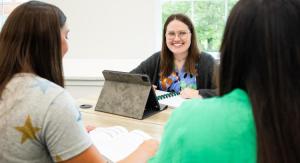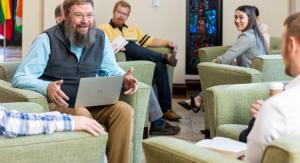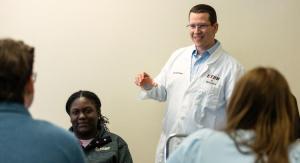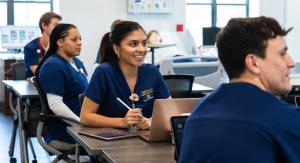The physiological benefits of exercise upon the human condition are well documented; moreover, research continues to demonstrate the benefits of physical activity on social, spiritual and mental/ emotional well being. Attaining knowledge and skills related to physical health, fitness and wellness allows for the promotion of total well being. It is the aim of the Kinesiology department to:
- Promote the benefits of an active lifestyle to the campus community.
- Prepare students for graduate school who wish to attend.
- Prepare professional educators in the field of Physical Education.
- Prepare professionals for careers in health, fitness, and wellness industries.
- Prepare athletic trainers for careers in education, clinical practice, and amateur or professional sports.
STUDENT LEARNING OUTCOMES
- Students will demonstrate a working knowledge of muscular function.
- Students will contrast environmental factors and their effect on human performance.
Courses
Rehabilitative Science General Education Requirements - 46 hours
English 1301, 1302, and three hours sophomore literature - 9 hours
Fine Arts (three hours from music, theatre, fine arts, art, or equivalent) - 3 hours
Religion 1320 and 1330 - 6 hours
History - 3 hours
Political Science 2305 - 3 hours
Social Science PSYC 2301 - 3 hours
Physical Activity - KINE 1238 - 2 hours
Lab Science - BIOL 2401 and BIOL 2402 with a grade of "C" or better - 8 hours
Mathematics - MATH1314 and MATH 1342 - 6 hours
Speech 1311, 1315, or 1318 - 3 hours
Major area of study - 69 hours
Minor (optional, minimum of 18 hours if selected) -18 hours
Electives (to total 120 hours)
Total: Minimum one hundred twenty (120) semester hours
Rehabilitative Science Major Requirements Completion of sixty-nine (69) semester hours: Rehabilitative Core Requirements:
KINE 2307 Upper Extremity Injury Assessment in Athletic Training
KINE 2308 Lower Extremity Injury in Assessment in Athletic Training
KINE 3300 Therapeutic Modalities
KINE 3302 Injury Rehabilitation Techniques
KINE 4305 Kinesiology Internship
KINE 4310 Human Diseases
Biology Core Requirements:
BIOL 2302 Medical Terminology and Health Occupations
BIOL 1406 General Biology I
BIOL 1407 General Biology II
Chemistry Core Requirements:
CHEM 1311 General Chemistry I
CHEM 1111 General Chemistry I Laboratory
CHEM 1312 General Chemistry II
CHEM 1112 General Chemistry II Laboratory
Kinesiology Core Requirements:
KINE 3311 Exercise Physiology
KINE 3312 Kinesiology and Applied Anatomy
KINE 4303 Applied Biomechanics
Psychology Core Requirements:
PSYC 2314 Development through the Lifespan
PSYC 2332 Introduction to Research Methods
PSYC 4304 Abnormal Psychology
Three (3) additional hours of advanced psychology courses
Eight (8) hours from Chemistry or Physics:
PHYS 1401 General Physics I
PSYC 4304 Abnormal Psychology
RETENTION AND PROGRESSION POLICY FOR REHABILITATIVE SCIENCE MAJOR
Students must earn a minimum grade of "C" in all courses within the major and maintain a cumulative GPA of 3.0 in all courses.
Failure to maintain acceptable academic standards as listed above will result in the student being placed on probationary status for one semester. If the student shows a lack of academic progress and has not achieved an acceptable GPA (3.0 cumulative minimum) by the end of the probationary semester, the student may be dismissed from the program. Once academic standards have been met the student may apply for readmission to the program. Annually after admission, the student must also complete the following requirements. Students that fail to complete the following may be removed from the program:
• Completion of Blood-borne Pathogen, OSHA, and/or Universal Precautions Training
• Completion of HIPAA/FERPA Confidentiality Training
REQUIRED COSTS DURING MATRICULATION FOR REHABILITATIVE SCIENCE MAJOR
Along with university tuition, rehabilitative science students may be required to pay course fees each semester to cover the cost of liability insurance and materials for the program. It is also the student's responsibility to maintain current certifications, pay for visits related to physical examination, annual immunizations, and testing. Students are also responsible for travel to and from observation and/or internship sites.












